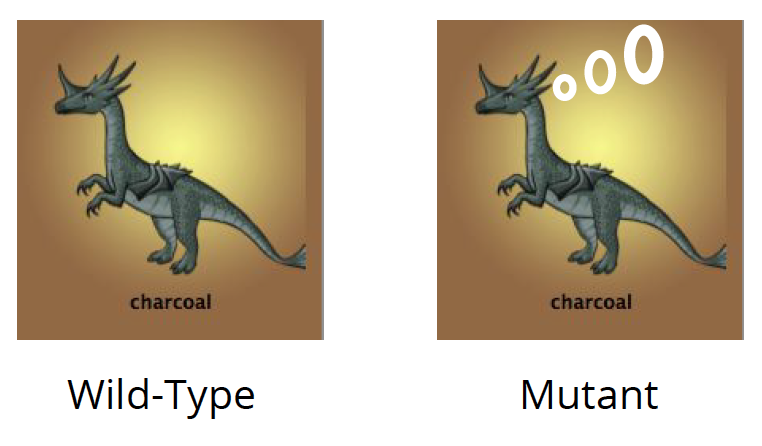Can dragons get cancer? Students in Dr. Ludmila Tyler’s Biochemistry Molecular Genetics and Genomics course at the University of Massachusetts, Amherst asked this question last semester. As part of their course work, they used our Geniverse software to study dragon genetics and develop new genes, mutant alleles, and phenotypes based on investigations of scientific literature. They imagined the genotypic and phenotypic possibilities for the fictional drake, the model species in Geniverse. Drakes are essentially miniature dragons, so students can take what they learn about drakes and apply it to dragons just as scientists study model species like mice to learn about human genetic disease.
We recently revealed the science behind the genes of Geniverse. Thanks to Dr. Tyler’s students, the dragon genome has the potential to expand in exciting ways.
- Some drakes now have a high-frequency acoustic sensitivity, which gives them the ability to navigate and forage using sound waves—thanks to research conducted by Nicholas Fordham and Thomas Riley Potter. They focused on the SLC26A5 gene, which encodes Prestin, a protein that functions in the membrane of cochlear outer hair cells and is involved in auditory function. In bats and dolphins, a change in one amino acid in the Prestin protein allows for echolocation.

- A form of dwarfism called achondroplosia was introduced to the drake genome by Brian Kim, Danny McSweeney, and Jared Stone. The group identified research showing a connection between short-limbed dwarfism and one altered amino acid in the FGFR3 transmembrane protein receptor expressed in bone-building cells. They created a drake with short stature due to a heterozygous genotype, containing a single mutated allele; the wild-type homozygous recessive genotype would result in an average-sized drake while a homozygous dominant genotype would result in the death of the drake offspring.
- The MaSp1 gene now enables drakes to secrete and shoot silk from their mouths (for example, to capture prey or build a home). Brandon Hancock and Mitch Kimber researched the MaSp1 fibroin protein across several spider species to look for areas of gene conservation.

- Drakes may now be resistant to cancerous tumors, thanks to research by Evan Smith and Kaitlyn Barrack, who added the TP53 tumor-suppressor gene. The gene encodes the p53 protein, which acts as a major tumor suppressant in many different organisms.
We’re excited that these students and other members of the class have extended the database of drake genes, and we’d love to be able to incorporate them in Geniverse software in the future.
Try Geniverse now. What additions to the dragon genome would you like to see?
